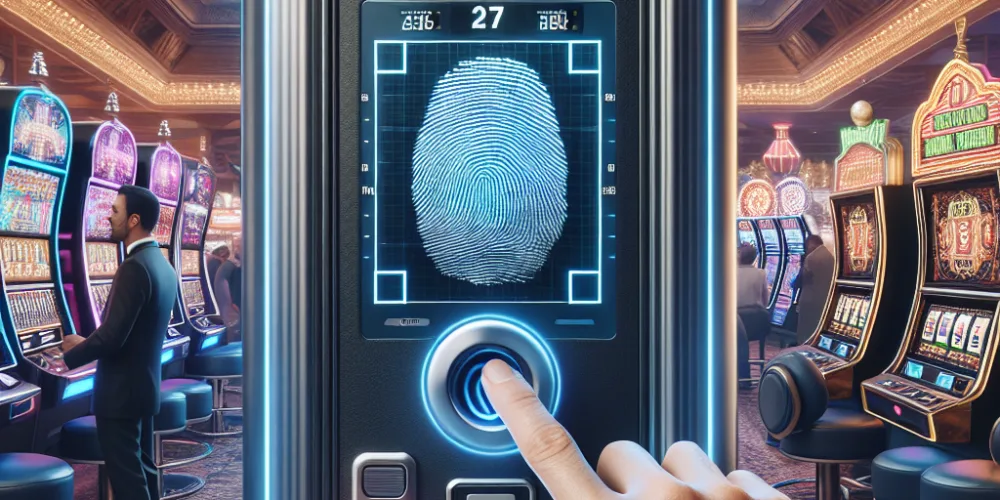In an unprecedented move to enhance casino security and customer experience, Nevada has become the first state to implement biometric technology across its slot machines. This initiative, announced earlier this week by the Nevada Gaming Control Board (NGCB), marks a significant leap in the way casinos will manage access to their gaming machines, potentially setting a new standard for the industry worldwide.
The decision comes after a year-long pilot project in select Las Vegas casinos, which showed a notable decrease in unauthorized use of machines and an improvement in customer satisfaction. The new system uses a sophisticated facial recognition algorithm combined with fingerprint verification to ensure that only registered players can access the machines.
“We are committed to ensuring the security and integrity of casino gaming,” said NGCB spokesperson Helena Wise. “This technology not only prevents underage gambling and reduces fraudulent activity but also streamlines the player experience, allowing guests to access machines without carrying physical forms of identification.”
The implementation of biometric technology will also aid in responsible gambling efforts. Slot machines equipped with this technology can be programmed to recognize individuals who have opted into voluntary self-exclusion lists, preventing them from accessing the machines and providing an additional layer of support for those at risk of gambling-related harm.
Casino operators have welcomed the new system. Tom Silver, VP of Operations at Mirage Resorts, shared, “Integrating biometric security not only enhances safety but also offers a more personalized gaming experience. Our guests have appreciated the added convenience and the peace of mind that comes with knowing their gaming activity is safe and private.”
The technology taps into a database that verifies individuals against state-issued ID records, with an opt-in policy ensuring that only willing participants use the biometric machines. Critics of the technology raise concerns about privacy and data security, questioning how biometric data will be protected and who will have access to it.
In response, the NGCB assures that all biometric data is encrypted and stored securely, with strict protocols in place to handle data breaches. “The privacy of our guests is paramount, and we’ve implemented the highest security standards to protect their information,” Wise explained.
Las Vegas casinos are set to complete the rollout of biometric slot machines by the end of the year, and other states are looking closely at Nevada’s model. “What happens in Nevada doesn’t always stay in Nevada,” joked Wise. “We believe this technology sets a new benchmark for the industry and could soon be adopted nationwide.”
The move could also have significant implications for the future of casino technology, potentially extending to other areas of gaming and hospitality. Experts speculate that similar biometric systems may soon be commonplace for not just slot machines but also for entry into VIP areas, hotel rooms, and even payment for meals and shows.
As the world of casino gaming evolves, Nevada’s pioneering work with biometric security places it at the forefront of technological advancement, enhancing the proven allure of its gaming industry with a commitment to safety, responsibility, and cutting-edge technology. The upcoming months will provide insight into how this bold initiative performs in the bustling environment of some of the world’s most frequented casinos.

David Farbacu is a seasoned writer with a passion for games, gaming, casinos, and Xbox. With a wealth of experience in the industry, David brings insightful reviews, comprehensive guides, and engaging articles that cater to both casual gamers and hardcore enthusiasts. His expertise spans across various gaming platforms and genres, making him a go-to source for the latest trends and developments in the gaming world.

